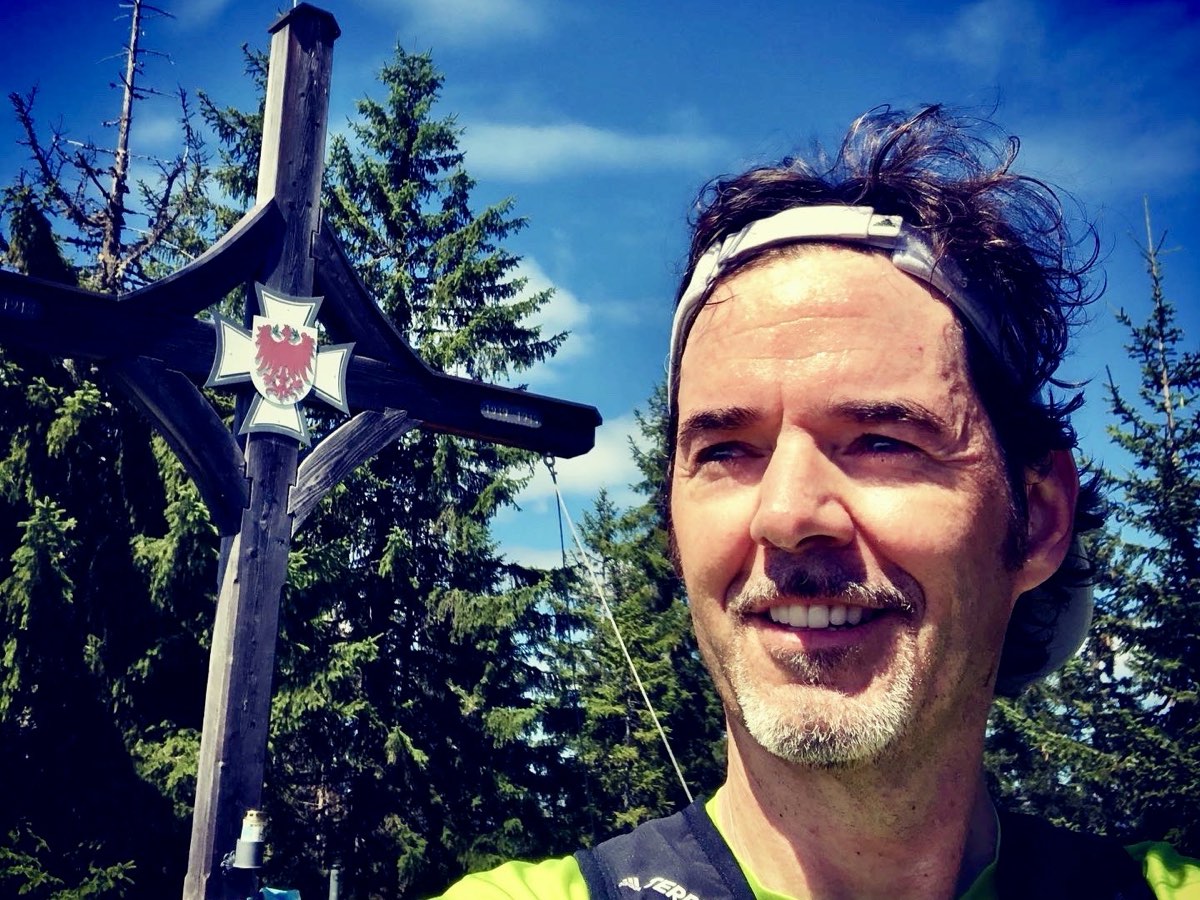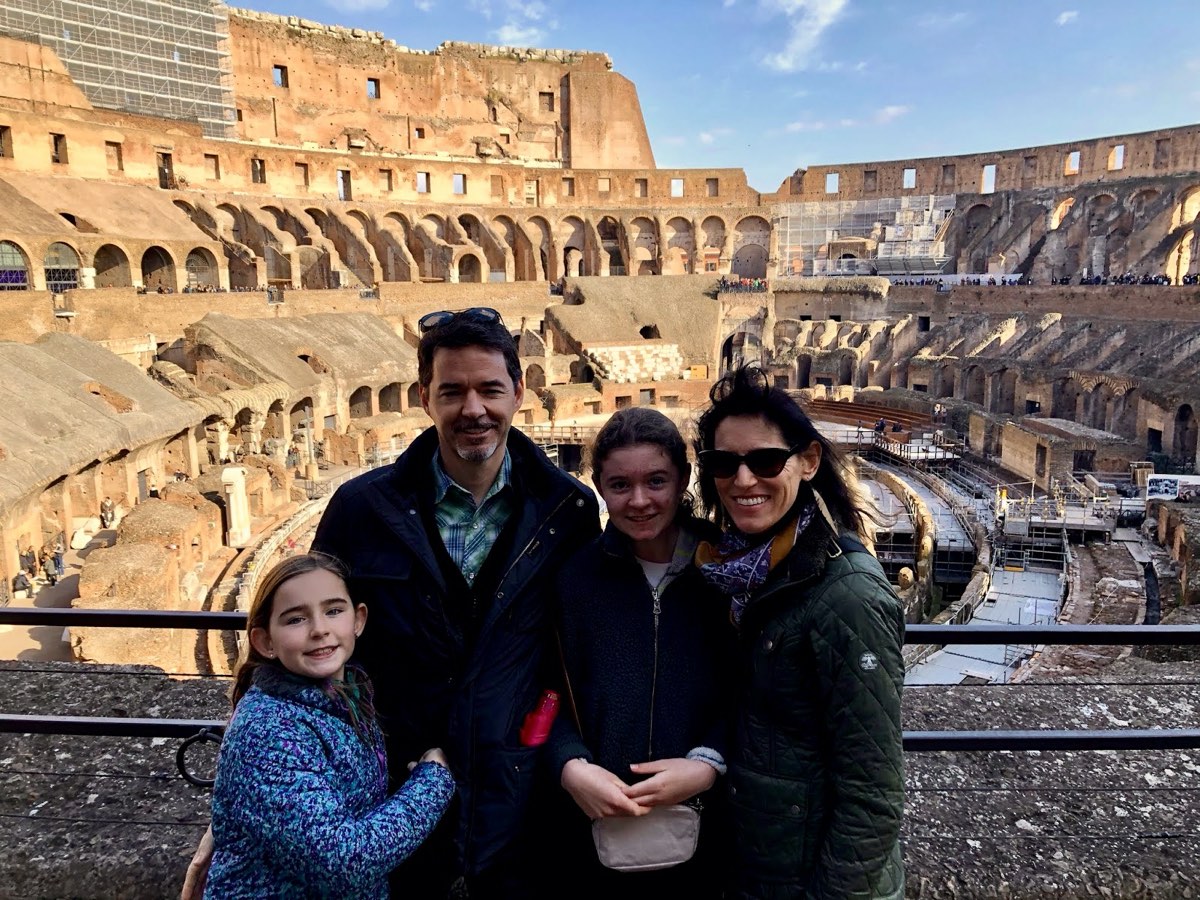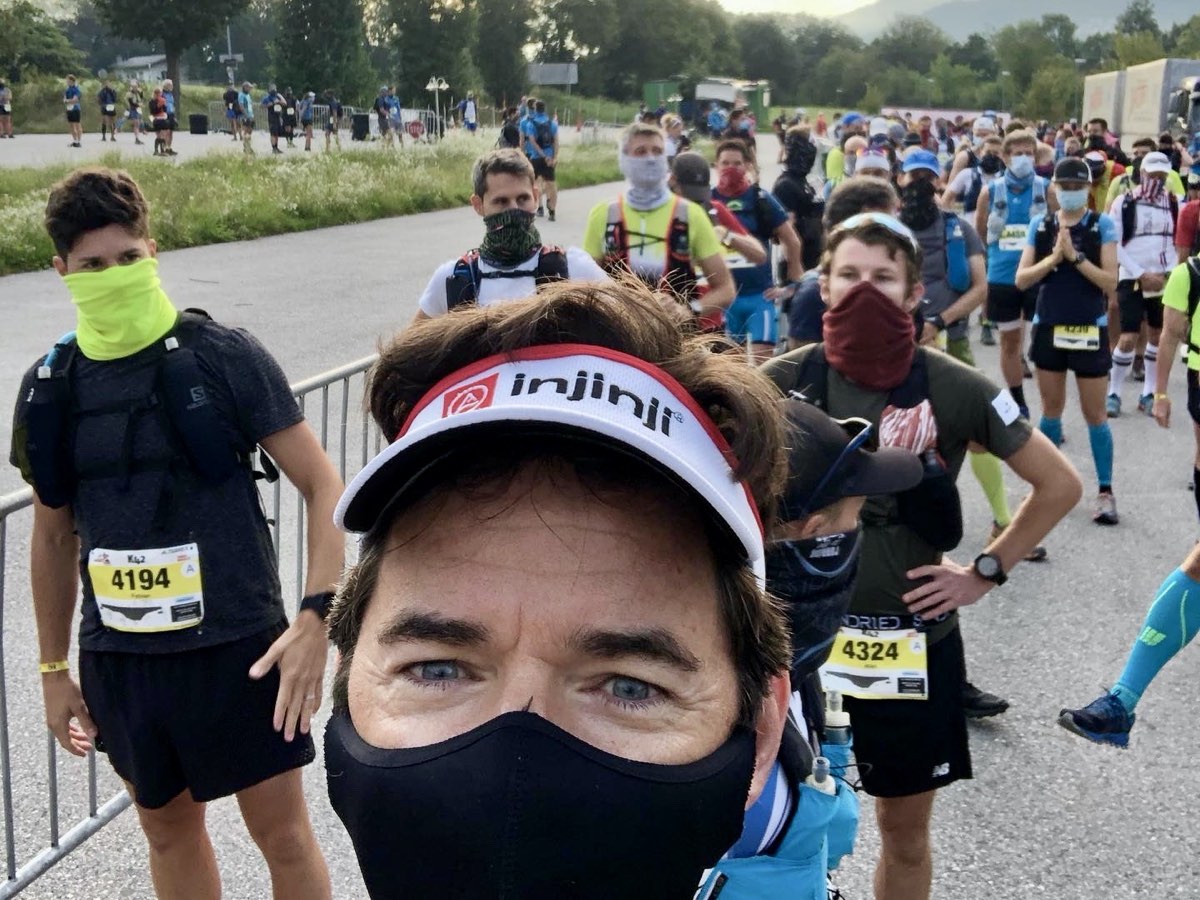“It’s minus nine degrees Celsius here,” American Scott Dunlap said, talking like a European. I press him to do the conversion, backing into the Linz, Austria temperature in Fahrenheit. Dunlap, his wife Christi, their two daughters, ages 13 and 10, and a dog and cat have been in Austria for two years now. Scott works there as Vice President of Mobile for adidas and CEO of subsidiary company Runtastic. He flips between pronouncing adidas like an American, “Ah-DEE-dus,” and the correct way, “AH-dee-dahs.”
Dunlap is a technology pioneer, an early voice of ultrarunning, and a veteran of some 150 ultramarathons with several U.S. age-group national championships. He steps me through his professional background. “I was trying to be a music major, but I was not great at hand writing composition,” he admitted. Those early beginnings at the University of Oregon did lead to technology opportunities, even if Dunlap never pursued a computer-science degree. “Microsoft and what’s now Accenture were offering jobs out of college, and I was a nerd who loved it. It was right as the internet was breaking too, the early 1990s.” Seeking sun, he and his wife soon moved to Silicon Valley in California and he landed as a product manager, capable of writing code but also recognizing what consumers wanted.
The job changes came fast, and Dunlap explains that it was in part due to the nature of the work. “Some of it’s how fast the company grows; you find out very quickly if you’re onto something or not. A company might be five to 10 people when you start and grow to 1,000 employees 18 months later. You go through that ride, and sometimes I’d just resign after an IPO [initial public offering] and start on the next one.” He’s done a lot, but found himself looking for what’s next, saying, “I was at the interface of technology and improving health, and optimistic about it. Some of that optimism is from being an athlete, and coming to it late. But what if we had one billion athletes all connected? If you can get them all to pick up one piece of trash, or all to work to save an ocean, maybe it would make a difference. If one billion people sign a petition, no government could ignore that. There’s some positive influence on the planet that could be made.”
Dunlap went looking for the right opportunity, and with the unique combination of values and challenges that he wanted. “adidas had this start-up Runtastic–it’s very Strava-like. They left it as a standalone [business], but [thanks to adidas] I can call David Beckham, or Lionel Messi, or Patrick Mahomes,” he shared. “To connect a billion athletes, you need that worldwide presence. It’s an amazing opportunity, the fast nimble nature of a start-up, but also the support of a big company. Runtastic was the Strava of Europe for a long time. We were the first to get to training plans that you could access on your own, but less on the social aspect. In Europe if you just wanted a standalone app without that connection, it was Runtastic. Right away the first thing we did was rebuild that social aspect, open up the API [application programming interface], gamify it some, and you can connect to any device.” He points to link-ups with Zwift, Peloton, and other fitness programs.
He leads a remote team, and contrasts work in the U.S. with that in Europe. “In Silicon Valley, everyone works 70 hours a week. I’ve got Spanish employees, Croatian, Austrian, Dutch. I did not have a lot of experience working with so many cultures simultaneously. When you’re clear on your strategy, European teams are much better at executing. They’re so used to working in scale. If I say that we need to develop this in 40 different languages, they know what to do. They all speak four to five languages apiece. They know that the Germans tend to run for these reasons, and Italians run because of this most of the time. In Silicon Valley, you might be more willing to experiment.”
He’s incredibly happy with his work too. “adidas really has a listen-first culture. They might say, ‘That’s a new perspective, let’s hear what you have to say.’ And then you’ll experiment and look at the data together.” While his employees are very language proficient, Dunlap confesses that he’s found the German language harder than anticipated, although the work is entirely in English. “I’m picking it up enough,” he said, “but finding a plumber is hard. It might takes us two weeks to find a plumber with the language challenge.”
The opportunity came as he and Christi were thinking to leave California. “We’d been in California for 20 years,” Dunlap said. “I think Christi was hoping for Paris, France, but there are beautiful mountains here. It’s fantastic. The running part of me, I’d been to UTMB and the Zermatt Marathon, but there are so many races here that I’d never otherwise get to, and maybe I will now that I’m local. The countries are so close. I can go for a 100-kilometer bike ride and accidentally go into the Czech Republic. You can jump in the car and get two countries away. COVID-19 has put a damper on some of that. The lockdowns on the borders have been frequent, and a U.S. passport is not helpful.” I ask if he pretends to be Canadian, but says he’s instead known as the American who always says “hi” when running.
The family hasn’t been back to the U.S. since moving, and his daughters are thriving in an international school. “They love it; that was a big surprise to me,” Dunlap smiled. “All of the international kids are in one school–Brazil, South Africa, Russia. Their language learning and comfort level have gone a lot faster than mine. We really wanted the girls to be global citizens by nature, to have a compassion for other cultures. We were in Woodside, California and it might be one of the nicest zip codes, but you can have a disconnected reality. It’s good for them to hang out on the mall with other kids, to learn to be a teenager, and it’s good to see them struggle to learn something new too. Our oldest is learning German, French, and Spanish, and I think will learn one more language in a year.”
I press on what he’s missed and he goes to food and the ocean. “They told us there was really good sushi here, but, it’s not really good sushi,” he grinned. “There are a lot of nuances of European foods that I didn’t know about though. Schnitzel is a weekly thing for us,” Dunlap said, leaning toward pork over chicken, before getting more thoughtful. “It’s really my first time being a minority, as an immigrant, and it’s very educational for me. In America it’s easier to strike up a conversation. Even in races here nobody talks, but maybe I just haven’t broken into it. I do love the church bells. You can tell time not by the sun, but by which church bells are going. It’s very soothing.”
Dunlap is 51 years old now, but feels fit. “I’m not that far off my best marathon right now, 2:50,” he cheered, with eyes toward February’s Transgrancanaria race. “I’m probably 15 years older than most of my employees, this gray-haired person, but I can outrun all of them. It’s a fun dynamic.”
Call for Comments
Share a Scott Dunlap story in the comments section. Thanks!



